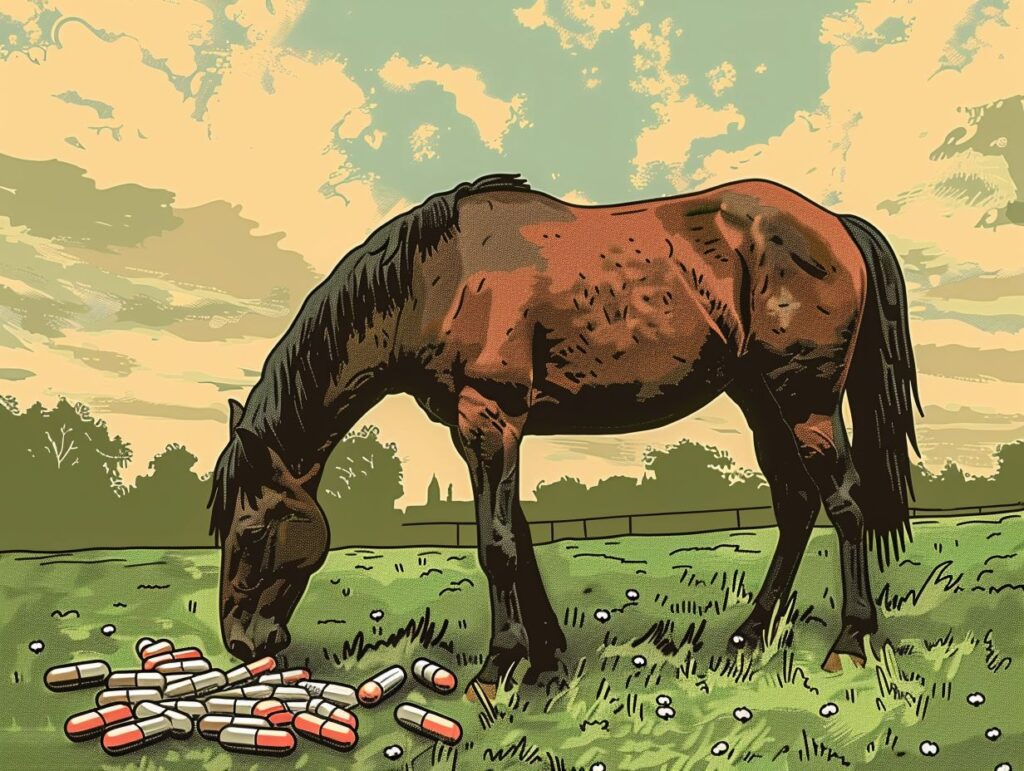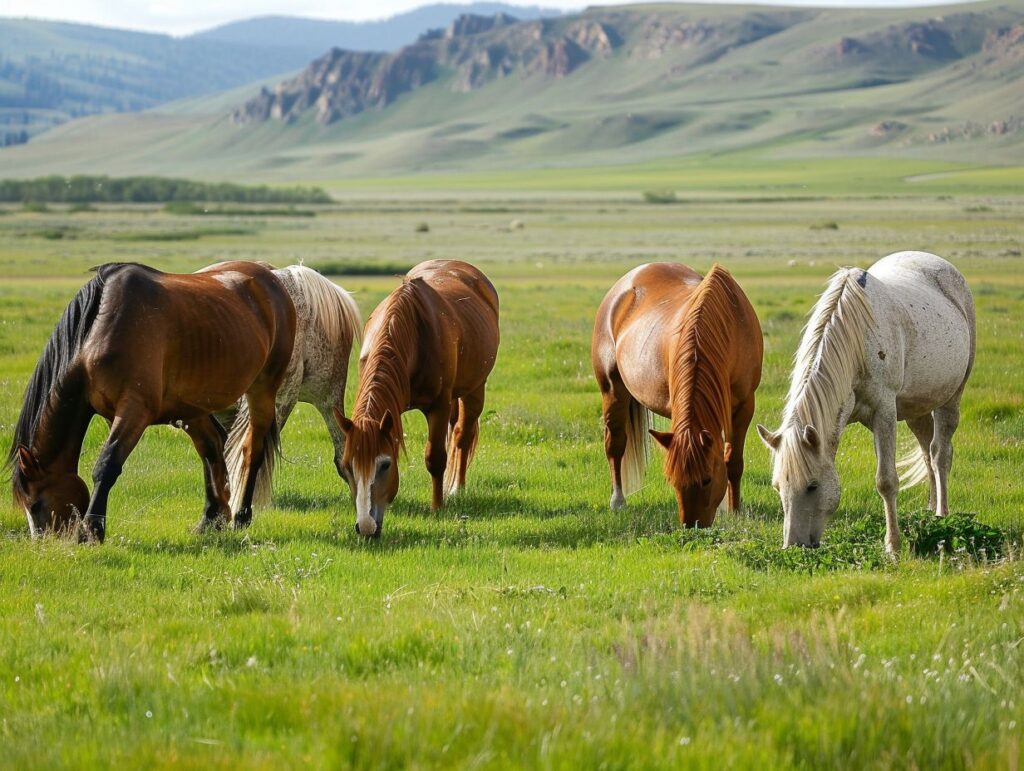Vitamins play a crucial role in maintaining the health and well-being of horses. In this discussion, we will delve into the importance of vitamins for horses, the signs of vitamin deficiency that should be monitored, the various types of vitamin supplements on the market, and the circumstances under which it is appropriate to administer these supplements to your equine companion.
Additionally, we will examine the potential risks and side effects associated with vitamin supplementation and strategies for managing them effectively. Stay engaged to gain further insights into ensuring the health and vitality of your horse.
The Importance of Vitamins for Horses
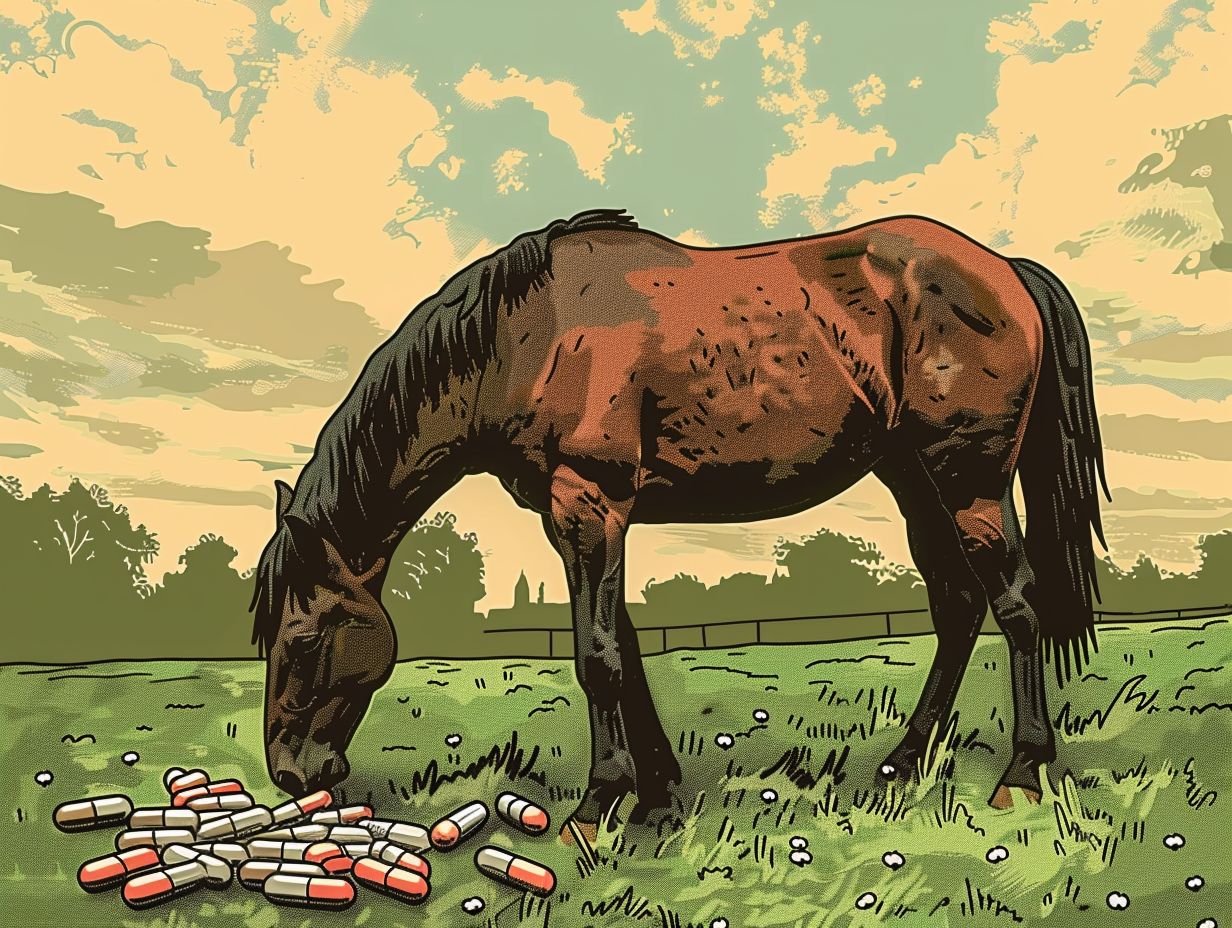
Ensuring the health and well-being of horses requires providing appropriate vitamin supplements. Equine nutrition is essential in ensuring that horses receive the necessary dietary requirements to support their overall health and vitality.
A well-balanced diet for horses should consist of essential vitamins such as vitamin A, D, and E, which are critical for vision, bone development, and immune function, respectively. Along with vitamins, minerals like calcium, phosphorus, and magnesium are crucial for strong bones, muscle function, and nerve activity. The inclusion of supplements such as probiotics can improve gut health and aid in digestion. These nutrients are vital in preventing common health issues in horses, including digestive disturbances, joint problems, and poor coat condition.
Role of Vitamins in Horse Health
Vitamins play a crucial role in maintaining the health of horses by supporting essential bodily functions and metabolic processes. Similarly, minerals are vital for ensuring proper growth, development, and overall equine health.
In terms of equine health, vitamins such as Vitamin A, D, E, and K are essential. For example, Vitamin A supports vision and reproductive health, while Vitamin D is essential for proper calcium absorption and bone health. Vitamin E serves as a powerful antioxidant, safeguarding cells from damage, and Vitamin K is integral to blood clotting processes.
Conversely, minerals like calcium, phosphorus, magnesium, and zinc are essential for skeletal development, muscle function, and overall metabolic processes in horses. Maintaining a balanced intake of these vitamins and minerals is crucial for sustaining optimal health and well-being in equines.
Signs of Vitamin Deficiency in Horses
Recognizing the signs of vitamin deficiency in horses is crucial for maintaining equine vitality and overall health. Common deficiencies can stem from inadequate essential nutrients in the horse’s diet.
Deficiencies in crucial vitamins like Vitamin A, D, E, and B-complex can trigger various symptoms in horses. For example, a shortage of Vitamin A may show up as poor coat quality, night blindness, or weakened immune function. Vitamin E deficiency might lead to muscle weakness or neurological issues.
If you notice signs such as weight loss, lethargy, or decreased performance in your horse, it could hint at a potential need for dietary adjustments. Ensuring a well-rounded diet that includes quality forage, supplements, and fresh water can play a pivotal role in preventing these deficiencies and supporting optimal horse health.
Identifying Symptoms and Risks
Identifying symptoms of vitamin deficiencies in horses requires you to closely observe and understand potential risks. Horse owners and equine specialists both have a critical role to play in recognizing and addressing dietary deficiencies.
Common symptoms of vitamin deficiencies in horses include poor coat quality, weight loss, lethargy, and a diminished immune response. These deficiencies may arise from dietary imbalances, inadequate sunlight exposure, or underlying health issues. Without timely intervention, vitamin deficiencies can lead to severe health problems such as weakened bones, muscle weakness, and organ damage.
It is essential for collaboration between you as a horse owner and equine specialists to conduct thorough evaluations, implement dietary adjustments, and potentially introduce vitamin supplements to ensure the overall well-being of the horse.
Types of Vitamin Supplements for Horses
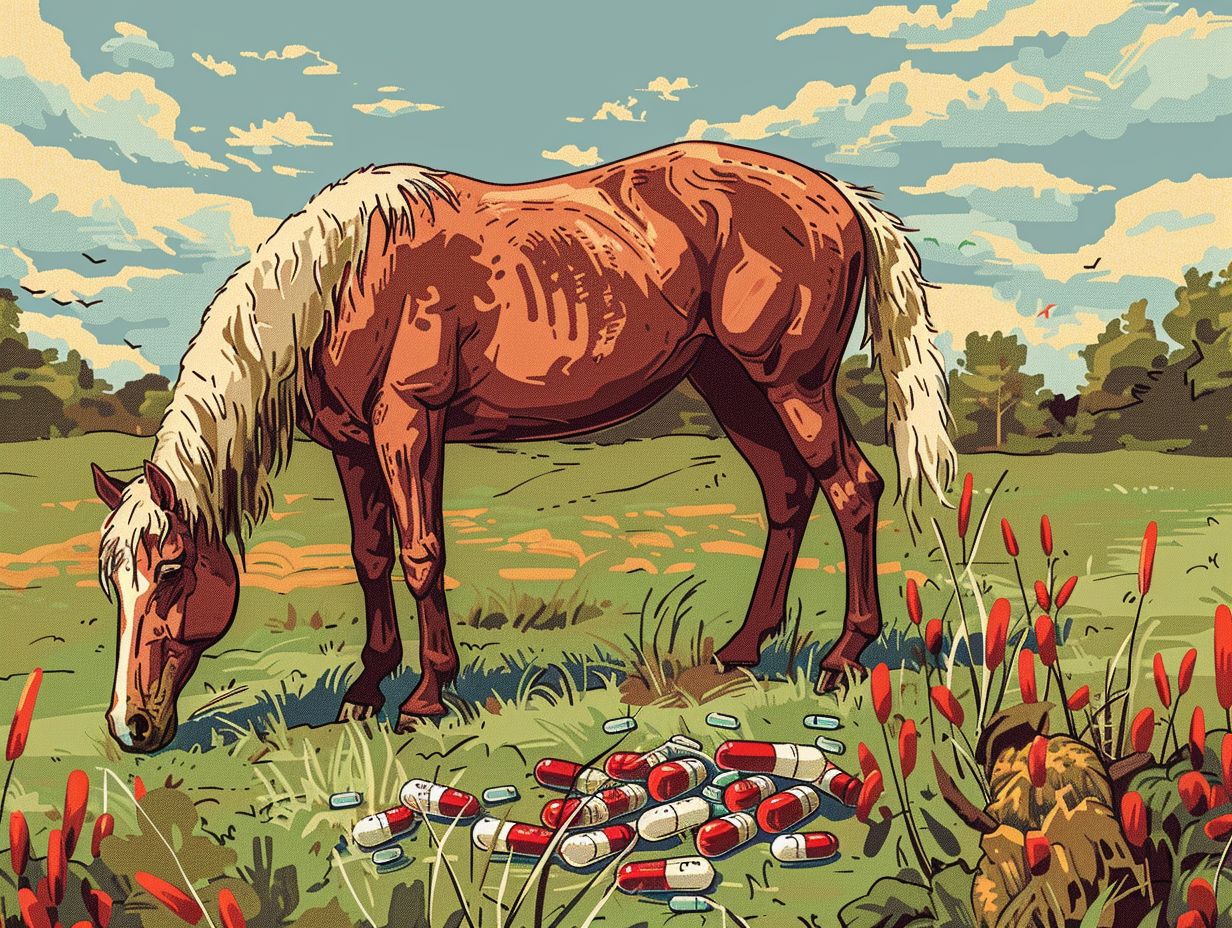
To ensure optimal nutrition and health maintenance for your horses, it is crucial to understand the different types of vitamin supplements available. These supplements can be sourced from various outlets, including natural diets and mineral supplements.
Natural diets serve as a valuable vitamin source for horses, offering essential nutrients that contribute to their overall well-being. Including a variety of fresh fruits and vegetables in their diet can provide a rich source of vitamins such as A, C, and E. Mineral supplements like selenium and zinc play a vital role in supporting key bodily functions and enhancing immune response. By diversifying the intake of vitamins and minerals, horse owners can help prevent deficiencies and enhance the health and performance of their equine companions.
Commonly Used Vitamins and Their Benefits
Commonly used vitamins offer a range of benefits for horses, including support for muscle development, enhancement of coat condition, and bolstering the immune system. Essential nutrients are critical for effective horse management and meeting the vitamin requirements within the equine industry.
These vitamins play a key role in maintaining the overall health and well-being of horses. For instance, Vitamin E is recognized for its antioxidant properties, which are instrumental in cell protection and muscle function support. Vitamin A is crucial for fostering healthy vision and skin, while Vitamin D facilitates calcium absorption for stronger bones. Ensuring horses receive the correct balance of vitamins through their diet can have a significant impact on their performance, energy levels, and ability to resist illnesses.
When to Give Vitamin Supplements to Horses
Determining the timing for administering vitamin supplements to your horses is crucial for maintaining equine wellness and ensuring a balanced diet. Monitoring vitamin levels and incorporating supplements as needed is essential for promoting optimal health.
One key practice for providing vitamin supplements to horses is to consider the specific dietary needs of each individual horse. Factors such as age, activity level, and overall health should all be taken into account when determining the appropriate dosage and type of supplements. It’s also important to consult with a veterinarian or equine nutritionist to develop a customized feeding plan that addresses any deficiencies and ensures the horse’s nutritional requirements are met. Regularly testing vitamin levels through blood work or other diagnostic tests can help in fine-tuning the supplementation regimen and making necessary adjustments for your horse’s well-being.
Factors to Consider and Recommended Dosages
When determining vitamin supplement dosages for horses, you need to take into account several factors. These include the horse’s current vitamin intake, recommendations from equine specialists, and any dietary adjustments that may be necessary. It is essential to monitor mineral levels closely to ensure that the vitamin supplementation is effective.
Equine specialists emphasize the importance of customizing vitamin dosages based on the individual requirements of each horse. Some horses may have specific needs or deficiencies that require higher levels of supplementation. Dietary adjustments are crucial in this process, as a well-balanced diet is key to ensuring that the horse is receiving essential nutrients in addition to the supplements. Regular monitoring of mineral levels is vital for refining the vitamin regimen to maximize the benefits and prevent any imbalances that could result from excessive supplementation.
Risks and Side Effects of Vitamin Supplements for Horses
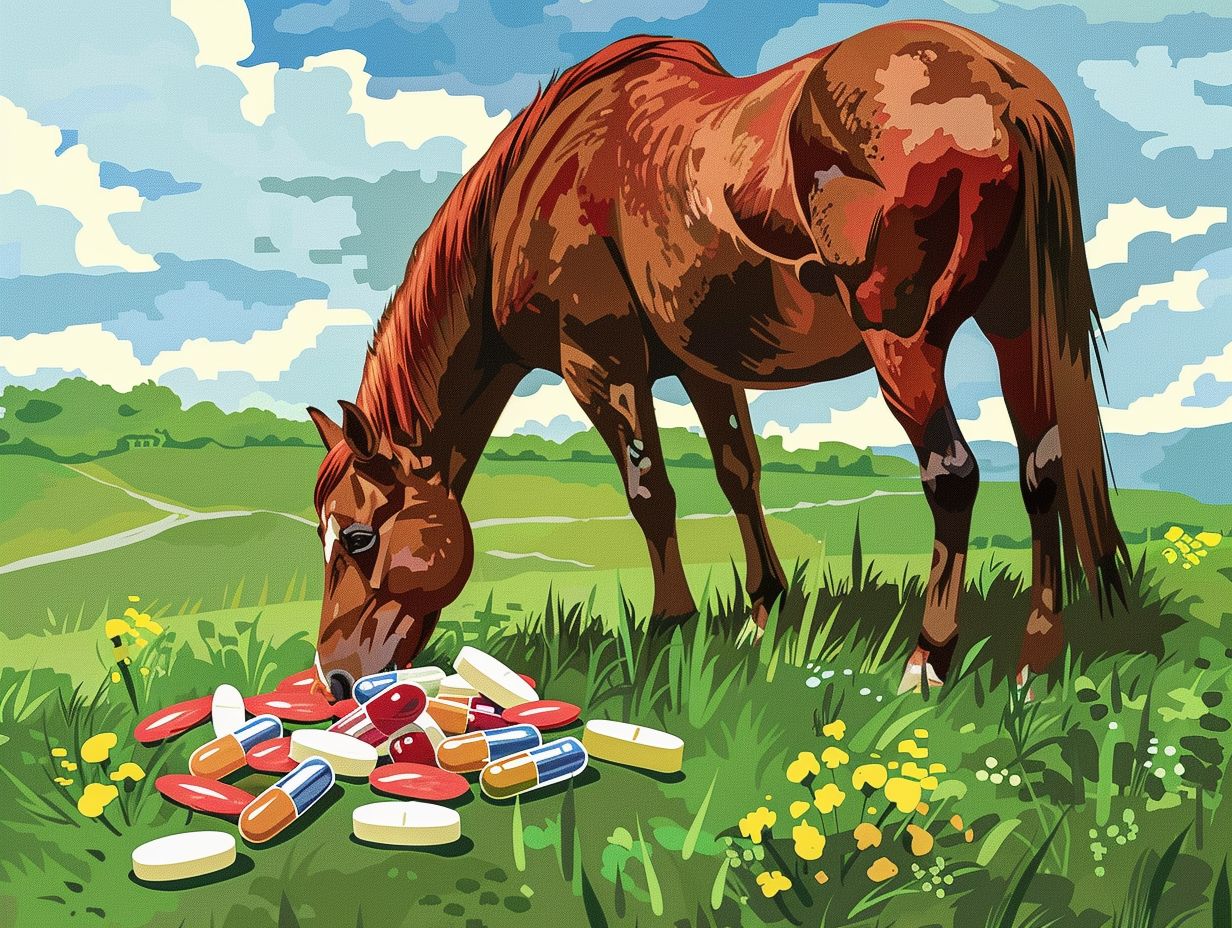
When considering the use of vitamin supplements for your horses, it is important to understand the potential risks and side effects associated with their usage. Several factors, such as the horse’s digestive system, feed analysis, hoof health, and metabolic function, are critical in determining the appropriateness of using vitamin supplements.
The horse’s digestive system is particularly sensitive and can significantly impact the absorption of vitamins. Conducting a thorough feed analysis is essential to identify any existing deficiencies that may require supplementation. Additionally, hoof health is crucial for the overall well-being of the horse, as specific vitamins are essential for maintaining strong hooves. The horse’s metabolic function, encompassing aspects such as energy production and utilization, also plays a role in determining the efficacy of vitamin supplementation.
Potential Dangers and How to Mitigate Them
Being aware of the potential dangers associated with vitamin supplements is crucial for safeguarding the overall health of your horses. Relying on scientific research and guidance from equine dietitians can help you maintain a proper nutritional balance while minimizing risks.
Understanding that while vitamin supplements can offer benefits to horses, improper dosage or excess intake can result in toxicity and adverse health effects is essential. Overdosing on certain vitamins such as Vitamin A or selenium can lead to severe issues like bone abnormalities or liver damage. To mitigate these risks, it is imperative that you seek advice from specialized equine dietitians who possess the expertise to create a balanced diet tailored to your horse’s specific needs, ensuring that any supplementation aligns with their existing nutritional intake.
By incorporating evidence-based strategies and implementing regular monitoring, you can optimize your equine companion’s health and overall well-being.
Frequently Asked Questions
Do Horses Need Vitamin Supplements?
Yes, horses may need vitamin supplements depending on their diet and individual nutritional needs.
What are the benefits of vitamin supplements for horses?
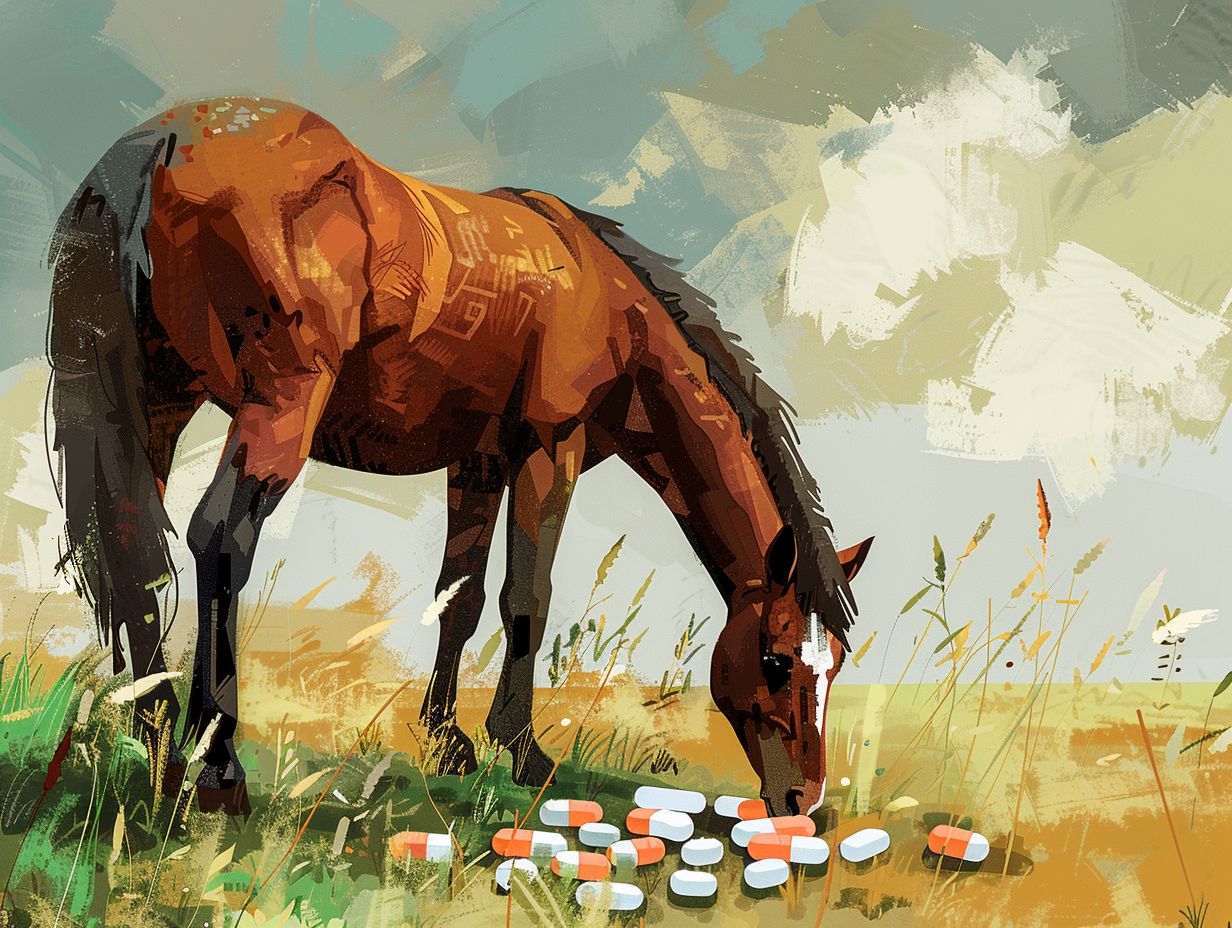
Vitamin supplements can help fill in any nutritional gaps in a horse’s diet, promote overall health and wellness, and support specific functions such as joint health or immune system function.
Which vitamins are most important for horses?
Vitamins A, D, E, and B-complex (including biotin) are essential for horses, but individual needs may vary depending on age, activity level, and health status.
How can I tell if my horse needs vitamin supplements?
Consult with a veterinarian or equine nutritionist to assess your horse’s diet and determine if there are any nutritional deficiencies that may warrant the use of vitamin supplements.
Are there any risks associated with giving horses vitamin supplements?
Yes, over-supplementation can lead to toxic levels of certain vitamins and should be avoided. Always follow recommended dosage guidelines and only give supplements that are specifically formulated for horses.
Can vitamin supplements replace a balanced diet for horses?
No, vitamin supplements should not be used as a replacement for a balanced and nutritious diet for horses. They should be used to complement and support a healthy diet.
